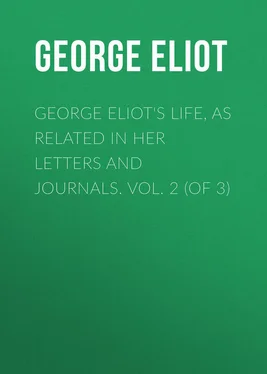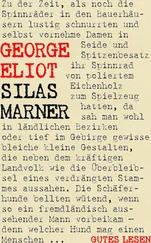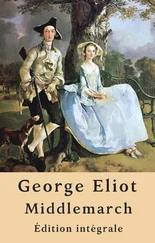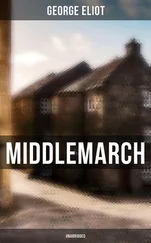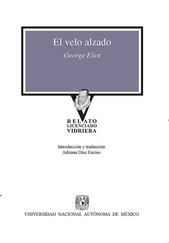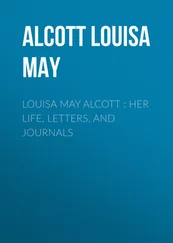George Eliot - George Eliot's Life, as Related in Her Letters and Journals. Vol. 2 (of 3)
Здесь есть возможность читать онлайн «George Eliot - George Eliot's Life, as Related in Her Letters and Journals. Vol. 2 (of 3)» — ознакомительный отрывок электронной книги совершенно бесплатно, а после прочтения отрывка купить полную версию. В некоторых случаях можно слушать аудио, скачать через торрент в формате fb2 и присутствует краткое содержание. Издательство: Иностранный паблик, Жанр: literature_19, foreign_antique, foreign_prose, на английском языке. Описание произведения, (предисловие) а так же отзывы посетителей доступны на портале библиотеки ЛибКат.
- Название:George Eliot's Life, as Related in Her Letters and Journals. Vol. 2 (of 3)
- Автор:
- Издательство:Иностранный паблик
- Жанр:
- Год:неизвестен
- ISBN:нет данных
- Рейтинг книги:3 / 5. Голосов: 1
-
Избранное:Добавить в избранное
- Отзывы:
-
Ваша оценка:
- 60
- 1
- 2
- 3
- 4
- 5
George Eliot's Life, as Related in Her Letters and Journals. Vol. 2 (of 3): краткое содержание, описание и аннотация
Предлагаем к чтению аннотацию, описание, краткое содержание или предисловие (зависит от того, что написал сам автор книги «George Eliot's Life, as Related in Her Letters and Journals. Vol. 2 (of 3)»). Если вы не нашли необходимую информацию о книге — напишите в комментариях, мы постараемся отыскать её.
George Eliot's Life, as Related in Her Letters and Journals. Vol. 2 (of 3) — читать онлайн ознакомительный отрывок
Ниже представлен текст книги, разбитый по страницам. Система сохранения места последней прочитанной страницы, позволяет с удобством читать онлайн бесплатно книгу «George Eliot's Life, as Related in Her Letters and Journals. Vol. 2 (of 3)», без необходимости каждый раз заново искать на чём Вы остановились. Поставьте закладку, и сможете в любой момент перейти на страницу, на которой закончили чтение.
Интервал:
Закладка:
In the evening we went to the opera and saw the "Nord Stern."
May 10. – Since Wednesday I have had a wretched cold and cough, and been otherwise ill, but I have had several pleasures nevertheless. On Friday, Bodenstedt called with Baron Schack to take us to Genelli's, the artist of whose powers Bodenstedt had spoken to us with enthusiastic admiration. The result to us was nothing but disappointment; the sketches he showed us seemed to us quite destitute of any striking merit. On Sunday we dined with Liebig, and spent the evening at Bodenstedt's, where we met Professor Bluntschli, the jurist, a very intelligent and agreeable man, and Melchior Meyr, a maker of novels and tragedies, otherwise an ineffectual personage.
Letter to Miss Sara Hennell, 10th May, 1858.
Our life here is very agreeable – full of pleasant novelty, although we take things quietly and observe our working hours just as if we were at Richmond. People are so kind to us that we feel already quite at home, sip baierisch Bier with great tolerance, and talk bad German with more and more aplomb . The place, you know, swarms with professors of all sorts – all gründlich , of course, and one or two of them great. There is no one we are more charmed with than Liebig. Mr. Lewes had no letter to him – we merely met him at an evening party; yet he has been particularly kind to us, and seems to have taken a benevolent liking to me. We dined with him and his family yesterday, and saw how men of European celebrity may put up with greasy cooking in private life. He lives in very good German style, however; has a handsome suite of apartments, and makes a greater figure than most of the professors. His manners are charming – easy, graceful, benignant, and all the more conspicuous because he is so quiet and low spoken among the loud talkers here. He looks best in his laboratory, with his velvet cap on, holding little phials in his hand, and talking of Kreatine and Kreatinine in the same easy way that well-bred ladies talk scandal. He is one of the professors who has been called here by the present king – Max – who seems to be a really sensible man among kings; gets up at five o'clock in the morning to study, and every Saturday evening has a gathering of the first men in science and literature, that he may benefit by their opinions on important subjects. At this Tafel-rund every man is required to say honestly what he thinks; every one may contradict every one else; and if the king suspects any one of a polite insincerity, the too polished man is invited no more. Liebig, the three poets – Geibel, Heyse, and Bodenstedt – and Professor Löher, a writer of considerable mark, are always at the Tafel-rund as an understood part of their functions; the rest are invited according to the king's direction. Bodenstedt is one of our best friends here – enormously instructed, after the fashion of Germans, but not at all stupid with it.
We were at the Siebolds' last night to meet a party of celebrities, and, what was better, to see the prettiest little picture of married life – the great comparative anatomist (Siebold) seated at the piano in his spectacles playing the difficult accompaniments to Schubert's songs, while his little round-faced wife sang them with much taste and feeling. They are not young. Siebold is gray, and probably more than fifty; his wife perhaps nearly forty; and it is all the prettier to see their admiration of each other. She said to Mr. Lewes, when he was speaking of her husband, "Ja, er ist ein netter Mann, nicht wahr?" 2 2 He is really a charming man, is he not?
We take the art in very small draughts at present – the German hours being difficult to adjust to our occupations. We are obliged to dine at one! and of course when we are well enough must work till then. Two hours afterwards all the great public exhibitions are closed, except the churches. I cannot admire much of the modern German art. It is for the most part elaborate lifelessness. Kaulbach's great compositions are huge charades; and I have seen nothing of his equal to his own "Reineke Fuchs." It is an unspeakable relief, after staring at one of his pictures – the "Destruction of Jerusalem," for example, which is a regular child's puzzle of symbolism – to sweep it all out of one's mind – which is very easily done, for nothing grasps you in it – and call up in your imagination a little Gerard Dow that you have seen hanging in a corner of one of the cabinets. We have been to his atelier , and he has given us a proof of his "Irrenhaus," 3 3 Picture of interior of a Lunatic Asylum.
a strange sketch, which he made years ago – very terrible and powerful. He is certainly a man of great faculty, but is, I imagine, carried out of his true path by the ambition to produce "Weltgeschichtliche Bilder," which the German critics may go into raptures about. His "Battle of the Huns," which is the most impressive of all his great pictures, was the first of the series. He painted it simply under the inspiration of the grand myth about the spirits of the dead warriors rising and carrying on the battle in the air. Straightway the German critics began to smoke furiously that vile tobacco which they call æsthetik , declared it a "Weltgeschichtliches Bild," and ever since Kaulbach has been concocting these pictures in which, instead of taking a single moment of reality and trusting to the infinite symbolism that belongs to all nature, he attempts to give you at one view a succession of events – each represented by some group which may mean "Whichever you please, my little dear."
I must tell you something else which interested me greatly, as the first example of the kind that has come under my observation. Among the awful mysterious names, hitherto known only as marginal references whom we have learned to clothe with ordinary flesh and blood, is Professor Martius (Spix and Martius), now an old man, and rich after the manner of being rich in Germany. He has a very sweet wife – one of those women who remain pretty and graceful in old age – and a family of three daughters and one son, all more than grown up. I learned that she is Catholic, that her daughters are Catholic, and her husband and son Protestant – the children having been so brought up according to the German law in cases of mixed marriage. I can't tell you how interesting it was to me to hear her tell of her experience in bringing up her son conscientiously as a Protestant, and then to hear her and her daughters speak of the exemplary priests who had shown them such tender fatherly care when they were in trouble. They are the most harmonious, affectionate family we have seen; and one delights in such a triumph of human goodness over the formal logic of theorists.
Journal, 1858.
May 13. – Geibel came and brought me the two volumes of his poems, and stayed chatting for an hour. We spent the evening quietly at home.
May 14. – After writing, we went for an hour to the Pinacothek, and looked at some of the Flemish pictures. In the afternoon we called at Liebig's, and he went a long walk with us – the long chain of snowy mountains in the hazy distance. After supper I read Geibel's "Junius Lieder."
May 15. – Read the 18th chapter of "Adam Bede" to G. He was much pleased with it. Then we walked in the Englische Garten, and heard the band, and saw the Germans drinking their beer. The park was lovely.
May 16. – We were to have gone to Grosshesselohe with the Siebolds, and went to Frühstück with them at 12, as a preliminary. Bodenstedt was there to accompany us. But heavy rain came on, and we spent the time till 5 o'clock in talking, hearing music, and listening to Bodenstedt's "Epic on the destruction of Novgorod." About seven, Liebig came to us and asked us to spend the evening at his house. We went and found Voelderndorff, Bischoff and his wife, and Carrière and Frau.
Читать дальшеИнтервал:
Закладка:
Похожие книги на «George Eliot's Life, as Related in Her Letters and Journals. Vol. 2 (of 3)»
Представляем Вашему вниманию похожие книги на «George Eliot's Life, as Related in Her Letters and Journals. Vol. 2 (of 3)» списком для выбора. Мы отобрали схожую по названию и смыслу литературу в надежде предоставить читателям больше вариантов отыскать новые, интересные, ещё непрочитанные произведения.
Обсуждение, отзывы о книге «George Eliot's Life, as Related in Her Letters and Journals. Vol. 2 (of 3)» и просто собственные мнения читателей. Оставьте ваши комментарии, напишите, что Вы думаете о произведении, его смысле или главных героях. Укажите что конкретно понравилось, а что нет, и почему Вы так считаете.
